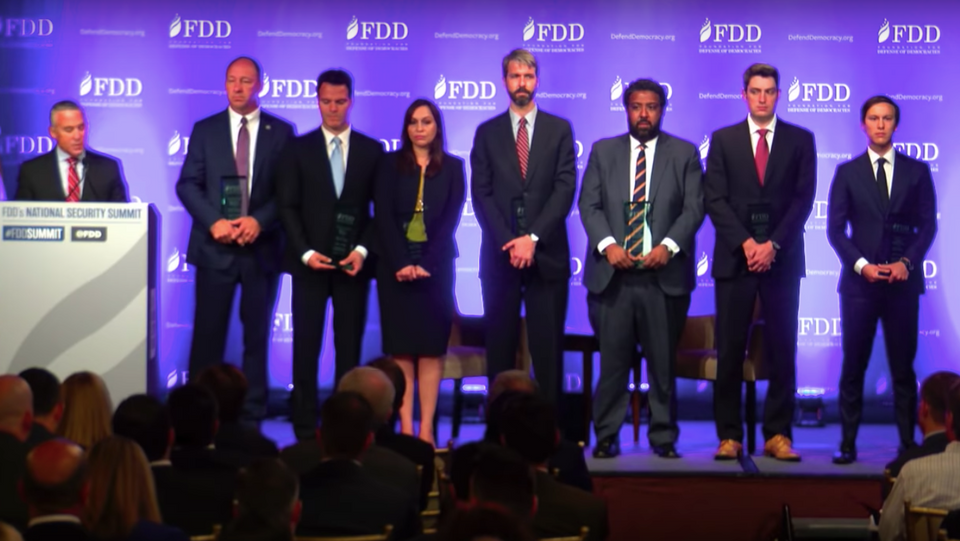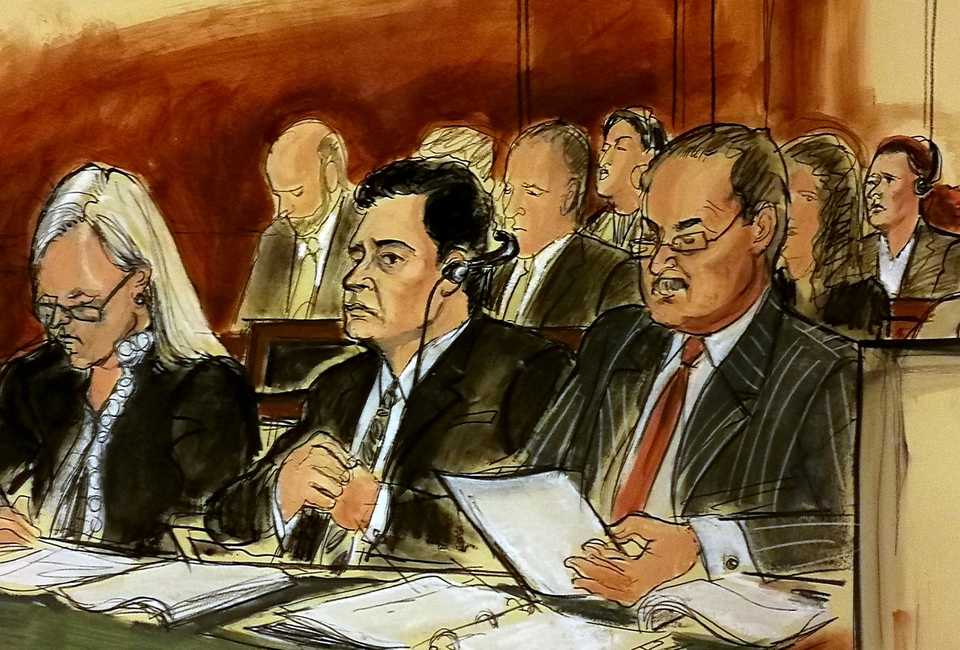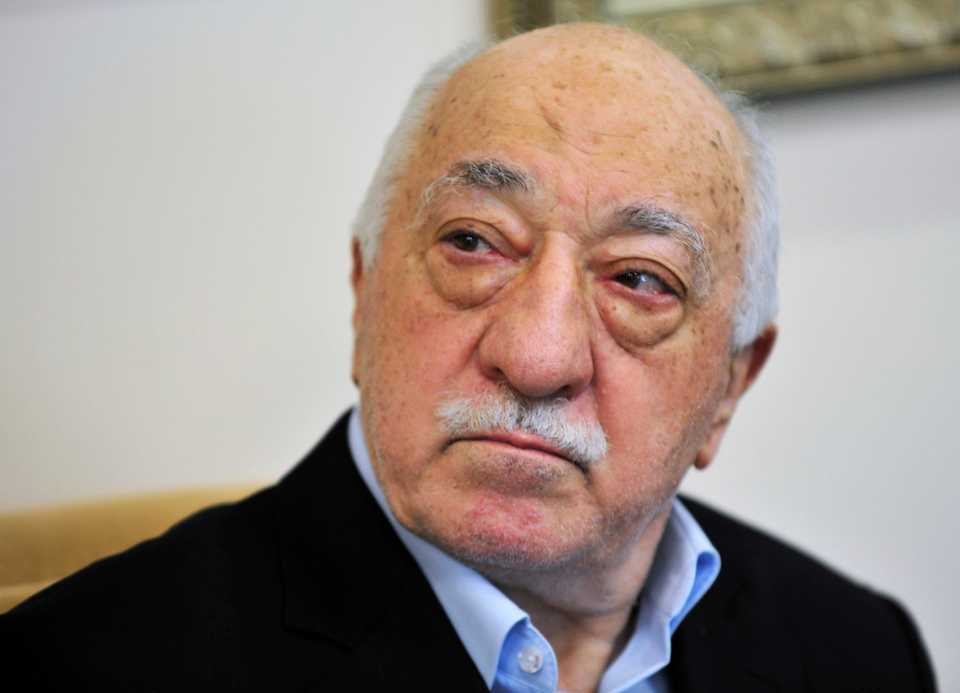
The Foundation for Defense of Democracies (FDD), a Washington-based pro-Israeli think tank, held its National Security Summit in the US capital on Tuesday.
Known for taking hawkish positions on delicate foreign policy issues, the FDD gave its highly touted Alberto Nisman Award for Courage to the Assistant United States Attorneys and the FBI Agents for the Southern District of New York, who worked on framing charges against Iranian-Turkish gold trader Reza Zarrab and Turkish banker Hakan Atilla over allegedly sidestepping the US sanctions on Iran.
Zarrab was arrested in March 2016 in Miami and later turned into state’s witness to testify against Atilla.
Atilla, a former executive at Turkish public-owned lender Halkbank, was arrested a year later, sentenced this May to 32 months of imprisonment in the US for helping Iran evade the US sanctions.
The US prosecutors said Atilla was involved in a scheme to help Iran spend oil and gas revenues abroad using fraudulent gold and food transactions through Halkbank, violating the US sanctions.
Speaking at the summit, Jonathan Schanzer, senior vice president at the FDD, complained Washington was being soft on Turkey.
“This award ceremony is the proof of the close relation between the Federal Bureau of Investigation, pro-Israeli American lobby groups and some controversial Turkish organisations (operating against Turkish state in the US). It appears that they all attempted to harm Turkey’s reputation,” Selman Ogut, an Associate Professor of Law at Medipol University in Istanbul, told TRT World.

“Common policies against Turkey”
The neo-conservative think tank FDD is reported to be funded by pro-Zionist billionaires, including Haim Saban, Roland Arnall and Sheldon Adelson. The group is also known as an ally of Israeli Prime Minister Benjamin Netanyahu.
In June, “hacked” emails of United Arab Emirates (UAE) Ambassador to Washington Yousef al Utaybah revealed that the gulf state and the FDD had very close ties.
The emails clearly mentioned the names of Utaybah, Dubowitz and Schanzer.
Utaybah was said to enjoy close relationship with pro-Israeli FDD and they were trying to develop common policies against Turkey and Qatar.
However, two senior FDD executives, CEO Mark Dubowitz and Jonathan Schanzer were appointed as witness experts to the case, stirring controversy over their stance against Turkey.

FBI agent heroises a FETO member
Jennifer McReynolds, one of the FBI agents who were given “courage award” told the audience that the Halkbank case was “only the end of the beginning,” insinuating the possibility of pinning more blames on Turkey.
“So where are we now, after the convictions of Zarrab and Atilla? To paraphrase Winston Churchill, the trial was only the end of the beginning,” she said.
“The implications from this investigation are far from over. Many other co-conspirators are indicted who have not yet been brought to justice.”
The FDD claims to defend “democratic values and fight the ideologies that drive terrorism,” but at the award ceremony McReynolds, the FBI agent, glorified Huseyin Korkmaz, a member of FETO group in the US, who was also a witness in the case.
The Fetullah Terrorist Organisation (FETO) and its US-based leader Fetullah Gulen orchestrated the defeated coup on July 15, 2016, which killed 251 people and injured more than 2,600.
Ankara also accuses FETO of being behind a long-running campaign to undermine democracy by infiltrating Turkish institutions, particularly the military, police and judiciary.
“A total disgrace to the principle of neutrality of judiciary”
Korkmaz is a central figure of a controversial investigation launched in 2013 against the government officials and several high ranking ministers between December 17-25. The so-called investigation soon earned the reputation of being a “judicial coup” attempt by the FETO members.
Korkmaz left the country in 2016 and arrived in the United States with so called classified documents belonging to the Turkish state.
Korkmaz earlier admitted in the court that he received financial assistance from the FBI and delivered documents related to the case, which Ankara says were fabricated by the group.
“Illegal documents can’t be accepted in a court case, but the US officials used them. It seems to be a scene from theatre rather than a legal case,” Ogut said.
“Huseyin Korkmaz was arrested in Turkey for his investigation of Turkish corruption, but by divine intervention, was freed on bail a few months after we arrested Zarrab in Miami,” the FBI agent McReynolds said in her speech in the event.
“Her biased statement at the event is an explicit testimony to the [politicised] nature of that case and real motivations behind it. She knows better than anyone else who fabricated those so called evidences/wiretaps and what their ill intentions were,” Serdar Kilic Ambassador of the Republic of Turkey to the United States reacted to McReynold’s claim on social media.
Her biased statement at the event is an explicit testimony to the policised nature of that case and real motivations behind it. She knows better than anyone else who fabricated those so called evidences/wiretaps and what their ill intentions were.
— Serdar Kilic (@serdarkilic9) August 28, 2018
“Her statement in this regard is therefore, to put it at the least, a total disgrace to the principle of neutrality of judiciary and is clearly and irrefutably pointing out to the fact that justice was not served in this case.”
Her statement in this regard is therefore, to put it at the least, a total disgrace to the principle of neutrality of judiciary and is clearly and irrefutably pointing out to the fact that justice was not served in this case.
— Serdar Kilic (@serdarkilic9) August 28, 2018
A move to discredit Halkbank?
Turkey’s presidential spokesman Ibrahim Kalin said last week that Atilla was unjustly imprisoned by the US as the result of a “plot” by the FETO.
“It is unacceptable that certain baseless and false allegations are made against Halkbank to weaken this public bank,” Kalin said.
“It seems that the purpose of those steps is to discredit respectable institutions and persons and to punish them unjustly rather than discover the truth.”
He added that Turkey is “extremely disturbed by this process.”
“That is an operational case against Turkey. When we look at from the perspective of international law, Washington is damaging its image around the globe by politicising these kind of cases,” Ogut, Associate Professor of Law, told TRT World.
The case is not the one and only reason for strained ties between Ankara and Washington recently.
Why the ties between two allies strained?
The two NATO allies have come up against various issues, including arrest of an American pastor in Turkey, the extradition of Fetullah Gulen from the US to Turkey, US armed support to the YPG – the Syrian branch of the PKK terror organisation.
The United States imposed sanctions on Turkey’s interior and justice ministers early in August, aimed at pressuring its NATO ally into releasing pastor Andrew Brunson who is being tried on espionage and terror-related charges in Turkish city of Izmir.
Washington is also supporting the Syrian branch of the PKK, which is recognised as a terrorist organisation by Turkey, the US and the EU.
The group has been waging an armed campaign against the Turkish state for more than three decades and the fighting has left more than 40,000 dead, including civilians.
The YPG had declared its desire for an autonomous region in northern Syria.
However, the US has decided to work with the group on the ground against Daesh in Syria despite Ankara’s strong objections.









Discussion about this post